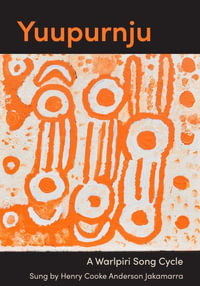Industry Reviews
"Analytical Studies in World Music deserves wide notice among musicologists, ethnomusicologists, and music theorists. It opens doors, urges a new self-awareness in the development of close readings of individual repertory items, and both underlines and undermines notions of difference that invariably turn up in cross-cultural projects like this."--Kofi Agawu, Journal of the American Musicological Society
"Written by a distinguished group of ethnomusicologists, music historians, composers, and theorists, Tenzer's innovative collection includes both works that exist in written scores and in aural tradition, music precisely notated and music substantially improvised. Each study provides unique insights into its respective culture, and the whole, far more than the sum of its parts, looks forward to a direction in scholarship in which all of the world's musical
works are seen equally worthy of analytical treatment that is sophisticated, culturally informed, and intuitively generated."--Bruno Nettl, Professor of Music and Anthropology Emeritus, University of
Illinois, Former President of the Society for Ethnomusicology
"Analytical Studies in World Music provides a foundation for a truly cross-cultural branch of music theory. Its central premise is as simple as it is startling: that musics of different cultures can be regarded on equal terms, and that doing so deepens our understanding not just of the pieces being studied but of music as a whole. The book not only provides extremely useful entry points to a remarkably broad range of music, but does so with exemplary
scholarship: Tenzer's introduction is revolutionary in its clear-headedness, gently and reasonably advocating a radical reconception of the ways we categorize, teach, and ultimately think about music in the
world today."--Evan Ziporyn, Kenan Sahin Distinguished Professor of Music, Massachusetts Institute of Technology
"This groundbreaking collection tackles one of the most enduring issues in ethnomusicology: the analysis of the world's so-called non-Western musics using primarily Western theories and models. The authors have rewarded us with imaginative analyses that are responsive both to the sensibilities of the insiders who created this music and to those of the outsiders who have come to know and love it."--Ellen Koskoff, Professor of Ethnomusicology, Eastman School of
Music, Former President of the Society for Ethnomusicology
"Tenzer's argument is clear and well informed. I have no difficulty with my students engaging with his views.... I am confidents that ASWM will become a recognized teaching tool. I am also in no doubt about the excellence of the chapters as lessons in musical analysis."--Kevin Dawe, University of Leeds
"Written by a distinguished group of ethnomusicologists, music historians, composers, and theorists, Tenzer's innovative collection includes both works that exist in written scores and in aural tradition, music precisely notated and music substantially improvised. Each study provides unique insights into its respective culture, and the whole, far more than the sum of its parts, looks forward to a direction in scholarship in which all of the world's musical
works are seen equally worthy of analytical treatment that is sophisticated, culturally informed, and intuitively generated."--Bruno Nettl, Professor of Music and Anthropology Emeritus, University of
Illinois, Former President of the Society for Ethnomusicology
"Analytical Studies in World Music provides a foundation for a truly cross-cultural branch of music theory. Its central premise is as simple as it is startling: that musics of different cultures can be regarded on equal terms, and that doing so deepens our understanding not just of the pieces being studied but of music as a whole. The book not only provides extremely useful entry points to a remarkably broad range of music, but does so with exemplary
scholarship: Tenzer's introduction is revolutionary in its clear-headedness, gently and reasonably advocating a radical reconception of the ways we categorize, teach, and ultimately think about music in the
world today."--Evan Ziporyn, Kenan Sahin Distinguished Professor of Music, Massachusetts Institute of Technology
"This groundbreaking collection tackles one of the most enduring issues in ethnomusicology: the analysis of the world's so-called non-Western musics using primarily Western theories and models. The authors have rewarded us with imaginative analyses that are responsive both to the sensibilities of the insiders who created this music and to those of the outsiders who have come to know and love it."--Ellen Koskoff, Professor of Ethnomusicology, Eastman School of
Music, Former President of the Society for Ethnomusicology
"Tenzer's argument is clear and well informed. I have no difficulty with my students engaging with his views.... I am confidents that ASWM will become a recognized teaching tool. I am also in no doubt about the excellence of the chapters as lessons in musical analysis."--Kevin Dawe, University of Leeds
























